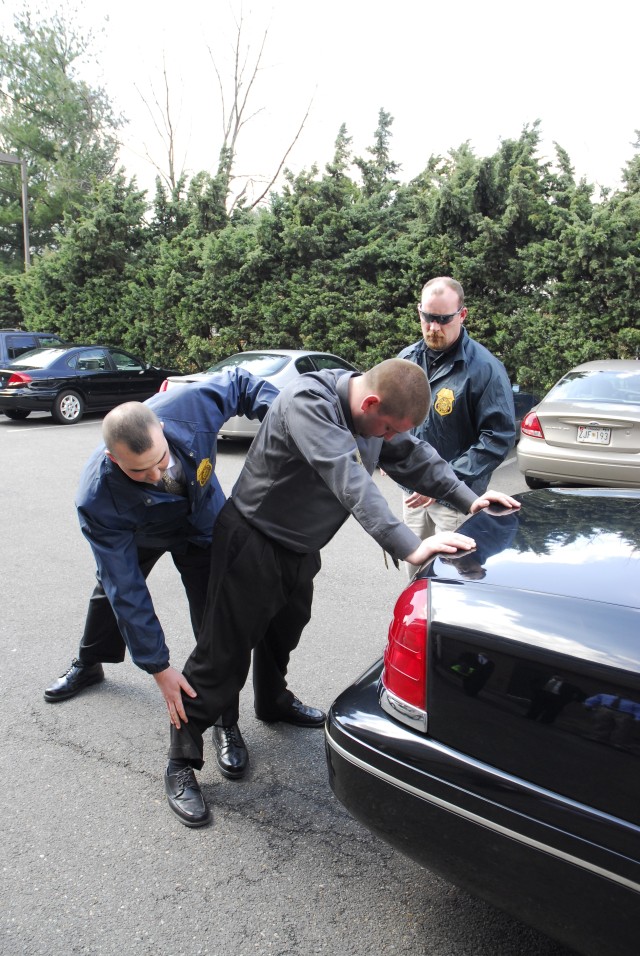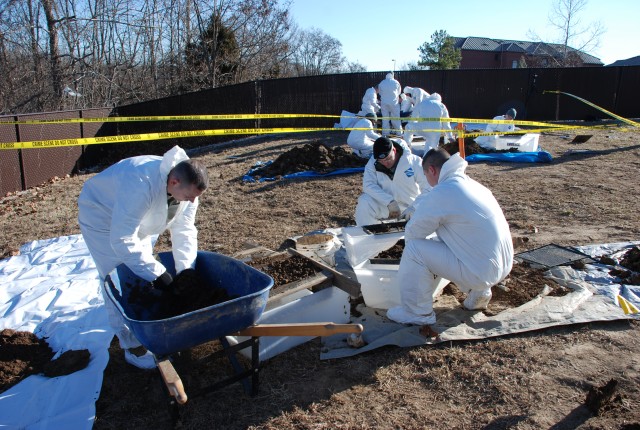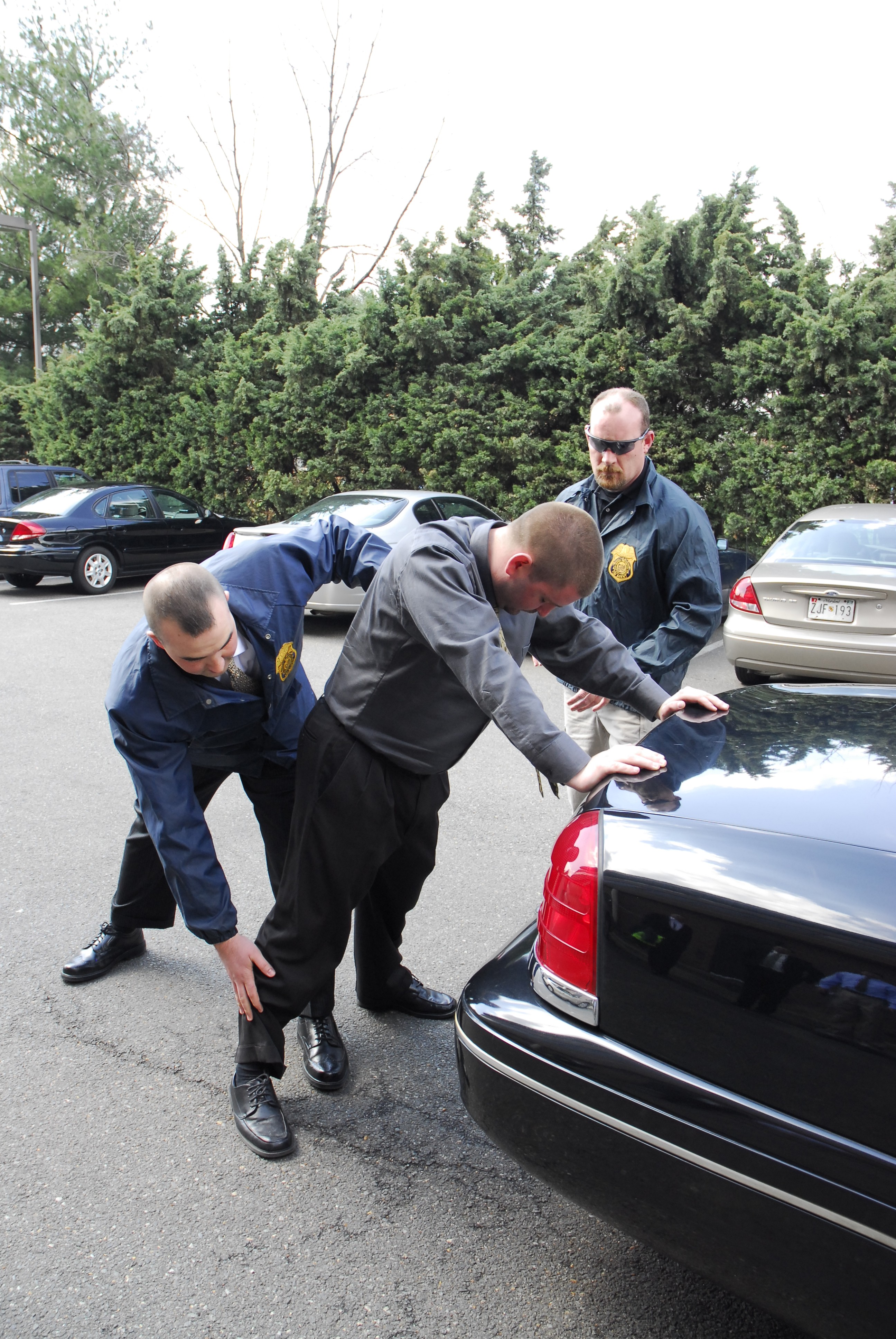WASHINGTON (Jan. 19, 2011) -- Billions of American dollars are paid to contractors in Iraq and Afghanistan, both large and small. Everything from ammunition to nasal spray is purchased on contract, and then shipped by another contracted organization to an Army post, camp or station somewhere in the world. Within this labyrinth of logistics and paper drills, opportunity to defraud the United States Government is ever present, resulting in undue hardship for those who serve.
However, for one military organization, this maze of price points and delivery schedules is their battlefield. The U.S. Army Criminal Investigation Command's Major Procurement Fraud Unit, or MPFU, is a diversified organization of highly-trained special agents who bring to the fight a wealth of experience in forensic accounting, law and logistics, and are well versed in the investigation of fraud and corruption cases.
Unlike the majority of modern military units, MPFU has the distinct honor of being one of a handful of commands within the Department of Defense that actually creates revenue for the United States government. Throughout the past decade, MPFU's recoveries total more than $1.6 billion, with more than $411 million returned directly to the Army.
Restitution from companies or individuals found liable in MPFU investigations is normally paid to the U.S. Treasury, however, funds are occasionally returned directly to the Army, depending on the circumstances of the offense(s), duration of the offense and the specific type of contract.
Headquartered at Fort Belvoir, Virginia, MPFU centrally directs and coordinates criminal investigations into allegations of major procurement fraud, defective pricing, corruption, kickbacks, money laundering, antitrust violations and other offenses involving major procurement and/or major acquisition systems in which the U.S. Army has a vested interest.
But for MPFU special agents, it's more than just following a paper trail.
"Practically all goods and services from Fort Bragg (N.C.) to Afghanistan are bought through the contracting process, so naturally there's opportunity for those dishonest folks who wish to break the law and take advantage of the Army," said James Podolak, the director of MPFU. "We will work to not only put you in jail for fraud or corruption, but take all the spoils of your crime; your house, your cars, property, illicit bank accounts, and you will be barred from doing business with the U.S. government, period."
"It's not just about the money. It's about justice. It's about taking care of those young men and women at the end of the contracting paper trail who live or die based on being provided the best training, equipment or services that the Army can buy," he said.
Podolak said on average, an MPFU case can take anywhere from two to three years, sometimes longer depending on many variables including the complexity of the contract, number of subjects, and because fraud cases are often prosecuted in both criminal and civil courts. This affords the Army the greatest opportunity to recoup as much as possible from those involved in an investigation.
Whereas traditional CID investigations are closed and turned over for prosecution under the Uniform Code of Military Justice, MPFU cases are investigated and prosecuted under federal statutes and courts.
"When we open a case, we begin by looking at the possibilities of the best overall remedies for the Army including civil and criminal prosecution," he said. "Then our Special Agents stay with it and work with the U.S. Attorney office through the pre-trial, trial and sentencing processes, which is another reason why some of our cases take so long."
One investigation, originating from the San Antonio MPFU office in the fall of 2001 and lasting until this year, put a stop to a corrupt food supplier that could have resulted in the sickening of American Soldiers worldwide.
Samir Itani and his company American Grocers Ltd. (AGL), a major government prime food vendor, directed his employees to falsify USDA stamps on groceries to prolong their shelf life. AGL also submitted inflated claims to the government for the food. These supplies were then shipped overseas for consumption by U.S. troops in the Middle East.
Through the hard work and dedication of the MPFU, Itani and AGL agreed to pay to the U.S. Government the sum of $15 million for civil culpability as well as a $1.8 million fine on the criminal side. Itani was sentenced to 24 months in prison and another 36 months of supervised release after his prison sentence.
In another of many cases, MPFU stepped in to assist the local CID office with an investigation involving the United States Military Academy at West Point, New York, that revealed a government employee's scheme to defraud the government.
The investigation determined that Bobbie Ryan, a government employee with the Information, Education and Technology Division of West Point, utilized Government Purchase Cards issued to her and others to make false purchases in excess of $2.9 million from CGW Enterprises, a fictitious company that she created and registered with the state of New York.
Over the course of six and a half years, Ryan used the GPC program to purchase training and associated materials from CGW that were never conducted or delivered. She subsequently withdrew the funds from the CGW account and deposited the money in her personal account.
Ryan was sentenced to 46 months in prison and ordered to pay $2,924,966 restitution to the U.S. Military Academy.
Along with its successes, MPFU still has its challenges. According to Podolak, some of the toughest challenges facing the command are the highly complex fraud and corruption investigations combined with an ever-increasing case load. With only 127 special agents assigned, and a worldwide mission, recoveries for the U.S. Government over the last two fiscal years alone have exceeded $387 million dollars.
Other MPFU contributions are not quite as obvious.
In the field, both deployed and at home, fraud awareness training for contracting officers, commanders and contracting officer representatives is provided by MPFU. Forward field commanders often rely on their expertise and request assistance from special agents on how to identify and overcome corruption during the contracting process.
"Sometimes, a commander will give us a call and ask for a briefing, or if they are heavily involved in contracting, a crime prevention survey to help them see what they could do better to prevent or deter crime," he said. "The more we can educate folks out there, the better off we all are."
Podolak said another major challenge for MPFU, aside from its traditional investigation and oversight role, has been assisting members of the Afghan government in their attempt to root out corruption.
"I've got agents deployed right now assisting commanders on various task forces who are trying to figure out how to keep funds identified for goods and services in Afghanistan where they need to be, and out of the hands of local warlords and the Taliban," he said. "We did it pretty well in Iraq, but in Afghanistan it has really been a challenge."
Since 2006, MPFU has conducted investigations resulting in more than 236 indictments and 299 convictions, 266 suspensions of contractors and 126 debarments of contractors. Still, with all its successes, MPFU continually faces challenges from both corrupt contractors and the demands of the missions at hand.
"MPFU exists to protect the Army and its interests and to preserve the integrity of our contracting process," Podolak said. "If you think you can succeed in committing fraud crimes against our Army, you're wrong."
Related Links:
U.S. Army Criminal Investigation Division
Criminal Investigations Special Agent (31D) Career Opportunities






Social Sharing